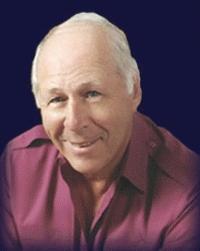 |
|
| Ben Bova | |
Ben Bova, scientist, multiple Hugo Award winner, and prolific science fiction author and editor, died on Sunday, November 29, of complications from Covid-19 and a stroke. He was 88. Bova wrote more than a hundred books, edited some of science fiction's best-known publications, and was president of the Science Fiction and Fantasy Writers of America (SFWA) for two terms 1990-1992 and was president of the National Space Society.
He began his career in a way that, Tor.com said, "brought experience to the science fiction genre that few authors could match": he was a technical editor for Project Vanguard, the U.S.'s first effort to launch a satellite into space in 1958. Bova then was a science writer for Avco Everett Research Laboratory, which built the heat shields for the Apollo 11 module.
Bova published his first novel, The Star Conquerors, in 1959, and followed up with dozens of others, as well as numerous short stories that appeared in, among other publications, Amazing Stories, Analog Science Fact and Fiction and Galaxy Magazine, The Magazine of Fantasy and Science Fiction.
In 1971, Bova became editor of Analog following the death of its longtime editor, John W. Campbell Jr. According to the Encyclopedia of Science Fiction, Bova maintained the publication's tendencies towards technological realism and Hard SF, "but considerably broadened its horizons." While there, he published notable stories such as Joe Haldeman's "Hero" (which became The Forever War) and earned the Hugo Award for Best Editor for numerous consecutive years before stepping down in 1977. He then became the first editor of Omni magazine, until leaving in 1982, and consulted on television shows such as The Starlost and Land of the Lost.
Among other honors and awards, as noted by the SFWA, Bova was the Author Guest of Honor at Chicon 2000, the 58th Worldcon, was a lifetime achievement recipient from the Arthur C. Clarke Foundation, a Robert A. Heinlein Award winner, a Skylark recipient, and an inductee into the First Fandom Hall of Fame. In 1995, his story "Inspiration" was a Nebula finalist.
Bova's best-known works, Tor.com observed, involved "plausible sciences about humanity's expansion into the universe, looking at how we might adapt to live in space with novels such as 1992's Mars, about the first human expedition to the red planet. He followed that novel up with additional installments, forming the Grand Tour series, which explored all of the solar system's major bodies." The latest installment, Uranus, was published in July, and was scheduled to be the first of a trilogy. The second installment, Neptune, is scheduled for release next year.

